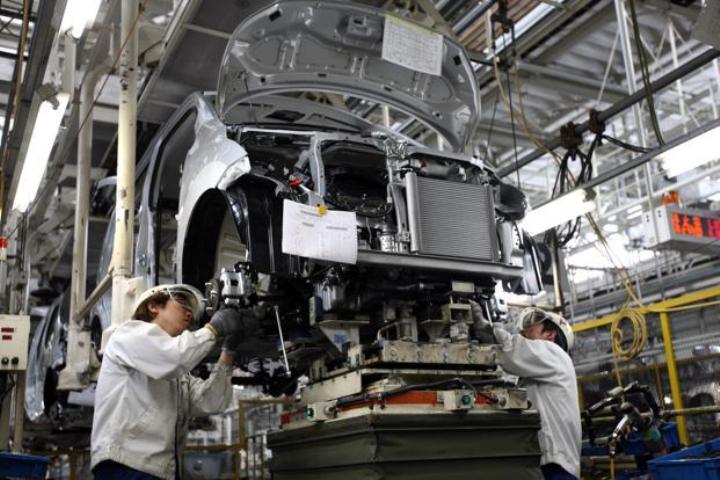
Suzuki on Wednesday admitted to finding “discrepancies” in its fuel-economy and emissions testing, but the firm denied deliberately manipulating data to make cars seem more efficient.
The remarks from the Japanese small-car maker came in the wake of rival Mitsubishi Motors’ shock admission last month that it had cheated on fuel-efficiency tests for decades.
On Wednesday, Mitsubishi said its president Tetsuro Aikawa would resign over the scandal, which has left the company’s reputation in tatters.
Japan’s transport ministry has ordered all domestic automakers to probe their own compliance with government testing methods following Mitsubishi’s revelations that it manipulated fuel-economy data.
Major players Nissan, Toyota, Honda and Mazda have already denied any wrongdoing.
Suzuki joined that list Wednesday, although it admitted that it was not using testing methods required by the government.
“Any wrongdoing, such as manipulation of fuel efficiency data, were not found,” it said.
“Some discrepancies were found in the automobile emission and fuel-efficiency testing process” between procedures required by the government and what Suzuki did, the company statement added.
In a curious revelation, Suzuki admitted that windy conditions at its seaside proving ground forced it to perform some tests inside a lab instead of outdoors as the government requires, which may have skewed results.
Sixteen models and about two million cars were affected, but the problem did not extend to cars sold outside Japan, according to Suzuki, which has a major presence in India.
Suzuki said it has been using the improper testing since 2010.
The firm’s shares dived as investors took it as the latest bad news for a global auto industry shaken by scandals over deadly defects and emissions cheating.
Suzuki stock plunged as much as 15 percent in afternoon trading. It closed 9.4 percent lower at 2,613 yen ($24).
The Suzuki news comes amid the Mitsubishi revelations and as Germany’s Volkswagen struggles to drive past a worldwide emissions cheating scandal.
Tokyo-based auto parts giant Takata has also been hit by lawsuits and regulatory probes over claims it hid deadly airbag flaws linked to at least 13 deaths and scores of injuries globally.
– Embarrassing emissions –
Suzuki’s 86-year-old chairman Osamu Suzuki, a descendant of the company’s founding family, visited the transport ministry Wednesday to discuss the issue and later apologised at a press briefing.
In a separate case, Seoul said this week it will fine Nissan for allegedly manipulating emissions data on a popular diesel sports utility vehicle sold in South Korea.
The news came as an embarrassment for Japan’s number two carmaker, but the company has so far not come under fire for emissions cheating in Japan or anywhere else.
The Suzuki admission did not appear as serious as Mitsubishi’s revelations.
“But even so, using a different testing method than the one ordered by the government is a problem,” Koji Endo, managing director at Advanced Research Japan, said earlier Wednesday.
Last week, Nissan threw an unexpected lifeline to Mitsubishi by offering to buy 34 percent of its shares, in a deal that would give Nissan effective control over the smaller firm.
The scandal — reported to cover almost every model sold in Japan since the early 1990s — also includes mini-cars produced by Mitsubishi for Nissan as part of a joint venture.
It was Nissan that first uncovered problems with the fuel economy data, but Mitsubishi has said Nissan had no part in the cheating.
Nissan’s top executive warned last week that he would kill the $2.2 billion offer if the Mitsubishi scandal spreads beyond Japan. – Agence France-Presse


































